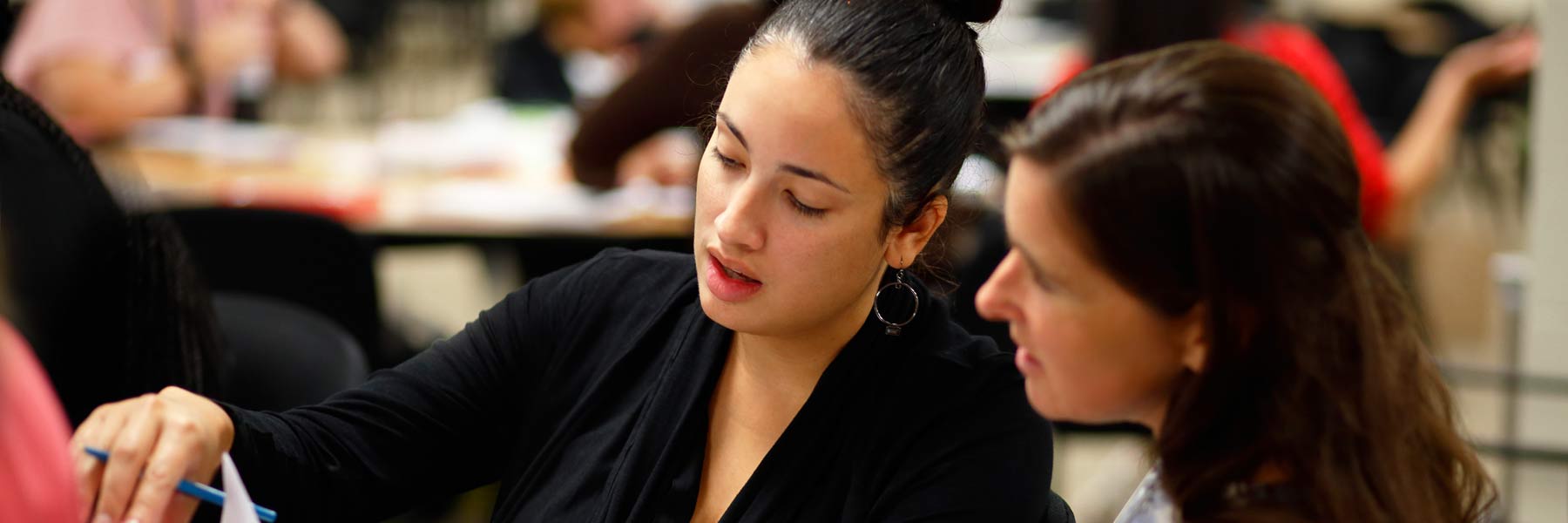Though positive behavioral interventions and supports (PBIS) can be implemented at the individual student or classroom level, PBIS Indiana works with districts and schools at a systems level. This work typically involves a significant paradigm shift with regard to behavior management beliefs and practices, and it takes time to achieve lasting change.
Express interest in working with PBIS IndianaBring PBIS to your district or school
Find resources
Are you a teacher looking for ways to use PBIS with a student or in your classroom? Explore our resources for educators.
The process
Implementing the PBIS framework at the district or school level is a significant undertaking—it takes approximately three to five years to achieve lasting change. But if the framework is implemented with fidelity, progress will be visible throughout all stages of implementation.

Stage 1: Explore
The exploration stage aims to help district or school leadership determine if PBIS is the right approach for their district or school. During this stage, leadership is asked to:
- View an overview module on PBIS.
- Read the explanations of district agreements and tasks.
Stage 2: Prepare
After a district or school decides to work with PBIS Indiana, its leadership must consider what changes might need to be made to the district’s or school’s settings and systems to fully accommodate and support implementation of PBIS. To ensure that a district or school is prepared to begin the implementation process, leadership is asked to:
- Complete the district agreements and task monitoring checklist.
- Complete the school readiness checklist.
- Create an action plan to monitor district agreements and tasks.
When these items have been completed, a district or school may enter into a three-year training agreement with PBIS Indiana.
You really feel like you are on a journey that will result in authentic system-wide changes for your school and tangible results for your kids.
Jim Dubois, superintendent, Baugo Community School Corporation
Stage 3: Build a team

To successfully implement PBIS, it’s important that all stakeholders are engaged in the process. One of the first steps in the process is to put together a representative school-wide leadership team that includes administrators, teachers, counselors, social workers, psychologists, families, students, and other stakeholders.
PBIS Indiana follows the recommendation of the PBIS National Technical Assistance Center that all school teams have access to coaching. Coaches are either district based or school based and receive additional training and technical assistance from PBIS Indiana. Coaches are charged with supporting the school leadership teams to lead the school faculty in implementing a school-wide PBIS plan.
After a school team has been formed and a coach has been selected, they begin the process of gathering baseline academic and discipline data that is used to understand a school’s behavioral and discipline patterns. The data is used to develop an evidence-based, multicomponent plan that will serve as the school’s discipline plan.
If PBIS is being implemented in multiple schools in a district, a district coordinator is appointed to oversee all the school-based leadership teams.
Stage 4: Create a plan
Having a clear vision and plan for the work is essential for success. Developing a plan using the PBIS framework includes the structural components and activities needed to initiate, support, and sustain classroom, building, and district-level change.
The PBIS framework begins with building a multifaceted school-wide discipline plan that establishes behavioral interventions and supports for all students. Tier 1 components include:
- School-wide expectations
- Location-specific teaching matrix
- Lesson plans for teaching behavioral expectations
- Adult responsibilities
- System for acknowledgement positive behavior
- System for responding to problem behavior
- Effective classroom practices
- Monitoring progress and outcomes
Tier 2 supports build on the strategies implemented at Tier 1, in order to prevent the need for more intensive interventions. Tier 2 supports are provided to small groups of students, offering more time and detailed instruction to help them succeed in the school environment.
Tier 3 systems build upon Tiers 1 and 2 and becomes an additional layer of support for students in both general and special education who need more individualized interventions to achieve positive outcomes.
Stage 5: Implement the plan

Initial implementation
After the initial roll-out, leadership teams monitor and adjust the school-wide plan using current school data. Plans to build Tier 2 and Tier 3 systems and interventions are developed for students who are in need of additional support. At this time, a school might choose to add additional school-based leadership teams that focuses on advanced-tier systems and supports.
Full implementation
Implementing the evidence-based PBIS framework with fidelity supports schools in reaching their desired outcomes of creating safe, positive, equitable schools where every student can feel valued, connected, and supported. Full implementation means leadership teams are using data to make informed decisions that improve the way things work for everyone.
PBIS Indiana is available to partner with organizations to build leadership and capacity to plan, implement and sustain the PBIS framework.
Whether you are getting ready, getting started, or getting better, our experienced Team is ready to collaborate to help you move towards your goals.
Training options include:
- District Awareness and Readiness
- Tier 1
- Effective Classroom Practices
- Tier 2
- Tier 3
- Data based decision making
- Restorative Practices
Technical assistance, needs assessments and consultation options are available to districts and schools looking to enhance their current school-wide systems of support.


